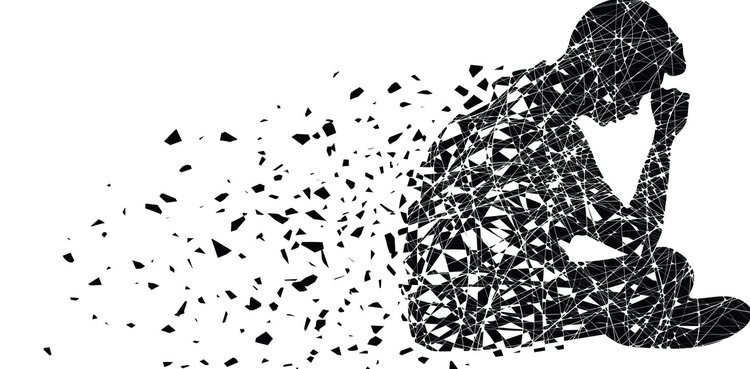Darcy writes a guest blog post following up on her call for a cystic fibrosis disease-specific mental health screening tool.
I first wrote about the need for new mental health screening tools for CF patients last spring. My recommendation to create new screening tools was based on numerous conversations with CF patients and families. Now I can say it’s based on research, too.
The November issue of the Journal of Cystic Fibrosis published a study out of the Netherlands that put the recommended screening tools to the test. Both the Cystic Fibrosis Foundation (CFF) and the International Committee on Mental Health in Cystic Fibrosis (ICMH) recommend that patients aged 12 & up are screened annually using the PHQ-9 and the GAD-7.
Here is some context on the PHQ-9 and the GAD-7. The 9-item Patient Health Questionnaire (PHQ-9) is a widely used, brief, reliable, valid tool used to assess for the prevalence and severity of depression. The nine items on the scale are based directly on the nine diagnostic criteria for major depressive disorder. Similarly, the 7-item Generalized Anxiety Disorder, another widely used, brief, reliable, valid tool, was developed to screen for (you guessed it) prevalence and severity of generalized anxiety disorder.
Based on my conversations with patients and families, I quickly learned that the PHQ-9 and GAD-7 don’t suffice for the CF population. I’ve heard countless stories of patients and caregivers experiencing emotional distress that is not flagged by care teams, because of these screening tools.
The problem is that CF-related mental health issues can exist outside the confines of any particular existing psychiatric diagnosis.
Gunnar is the perfect example. Gunnar scores a zero on the PHQ-9 and the GAD-7. Why? Because Gunnar does not have major depressive disorder or generalized anxiety disorder. What Gunnar does have is survivor’s guilt. He has nightmares about transplant. He has an uncanny ability to block out emotions. While some of these symptoms are similar to or may overlap with a depressive or anxious disorder, they are far from standard criteria.
The mental health issues that CF patients face are often far from standard criteria. Here’s a very simple way of looking at it – “feeling down” when you live with a terminal illness is different than the “feeling down” a typical person who battles major depressive disorder feels. It’s neurologically different. It’s hormonally different.
So why does the CFF and the IMCH recommend the PHQ-9 and the GAD-7? They give us three reasons:
- The PHQ-9 for depression screening and GAD-7 for anxiety screening are free, brief, reliable, and valid. (TRUE)
- They are available in many languages (TRUE)
- They contain optimal cut-off scores for detecting psychological symptoms (NOT TRUE in the CF population and now there is science to prove it!!!!)
The study out of the Netherlands, entitled, “Implementing the International Committee on Mental Health in Cystic Fibrosis (ICMH) guidelines: Screening accuracy and referral-treatment pathways” did an experiment to evaluate the effectiveness of the PHQ-9 and GAD-7 in the CF population.
A CF nurse administered the PHQ-9 and GAD-7 to 96 participants (79 caregivers; 17 adolescents with CF). 10 days later, a CF social worker or psychologist conducted a formal clinical psychological assessment. The “formal clinical psychological assessment” was a semi-structured face-to-face interview where the participant was asked open-ended questions about mental and physical health, impact of the disease on daily life, self-management and adherence, work/school/life/leisure balance, and social/family support.
The researchers wanted to judge how the PHQ-9 and GAD-7 matched up against the psychological assessment, which is considered to be the “gold standard” of mental health assessment.
Welp, the PHQ-9 and GAD-7 didn’t do so hot. Based on the PHQ-9 and GAD-7 screening, 11 participants were referred for mental health treatment.
On the other hand, the psychological assessment yielded 41 treatment referrals that were NOT previously advised for treatment, based on the PHQ-9 and GAD-7 screening alone.
The PHQ-9 and GAD-7 MISSED FORTY ONE PEOPLE who would benefit from mental health treatment. That’s almost HALF of the total number of participants in this study whose psychological symptoms went undetected by the recommended screening tools!!!!
THIS FIRES ME UP. Why? Because Gunnar is one of those people who was missed for years and years because he was never screened or was subjected to the PHQ-9/GAD-7.
We. Need. A. CF. Specific. Screening. Tool. For. Mental. Health.
We need one that is NOT based on existing psychiatric diagnoses and one that is based on the experience of living with cystic fibrosis. We need one that’s based off the anxiety related to searching for air. We need one that’s based on the fear of having your organs taken out and replaced with new ones. We need one that’s based on watching your peers die. We need one that’s based on having to do hours of treatments every day.
Those are the things that impact mental health in the CF population, in addition to standard anxiety and depression.
If anyone with a PhD is reading this, please, take a shot at creating one. In the meantime, I’m working on a screening tool with some esteemed peers. The more tools the better, in my opinion.
To CF patients and families – if you are struggling but your care team hasn’t noticed, get a second opinion. Find a social worker or psychologist who will give you that 45-minute face-to-face interview and uncover your struggles and outline a way to treat them.
Living with cystic fibrosis is hard. Parenting a sick child is hard. You are not alone. Your struggles and feelings are so valid, even if a screening tool tells you otherwise.





